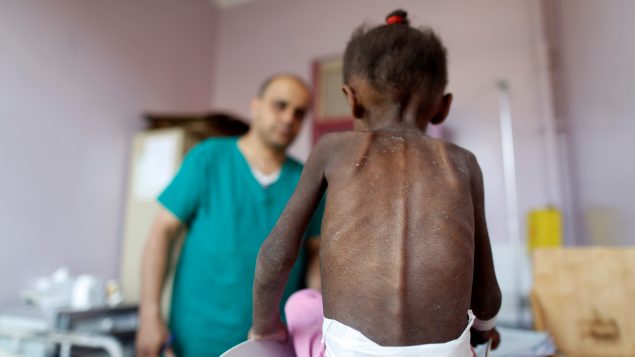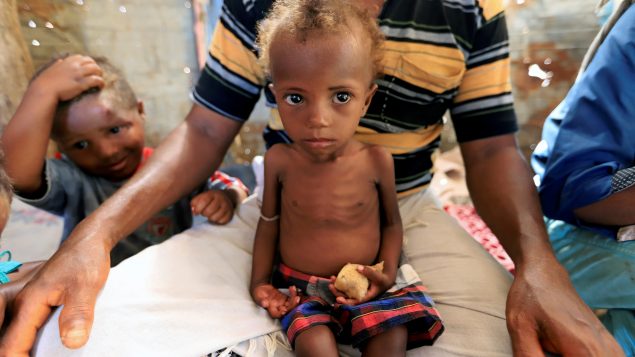The number of people suffering from acute hunger will nearly double to 265 million this year unless governments and private companies step in to avert “the worst humanitarian crisis” since the Second World War, the UN World Food Programme (WFP) warned on Tuesday.
“While dealing with a Covid-19 pandemic, we are also on the brink of a hunger pandemic,” WFP executive director David Beasley told the UN Security Council.
He said 821 million people go to bed hungry every night all over the world, a further 135 million people face “crisis levels of hunger or worse,” and new WFP analysis shows that due to the pandemic, an additional 130 million could be “pushed to the brink of starvation” by the end of the year.
“We’re already facing a perfect storm,” Beasley said. “So today, with COVID-19, I want to stress that we are not only facing a global health pandemic but also a global humanitarian catastrophe.
“Millions of civilians living in conflict-scarred nations, including many women and children, face being pushed to the brink of starvation, with the spectre of famine a very real and dangerous possibility.”

A nurse looks as he weighs a malnourished girl at a malnutrition treatment center in Sanaa, Yemen October 7, 2018. (Khaled Abdullah/REUTERS)
Beasley said for months even before the pandemic he’s been telling world leaders that 2020 could see the worst humanitarian crisis since the Second World War due to conflicts in Syria and Yemen, deepening crises in places like South Sudan and across the Sahel, desert locust swarms in Africa, more frequent natural disasters and economic crises.
“If we don’t prepare and act now – to secure access, avoid funding shortfalls and disruptions to trade – we could be facing multiple famines of biblical proportions within a short few months,” Beasley told the council, adding that about three dozen countries could face famine.
The coronavirus crisis means the global economy is expected to shrink by 3 per cent this year in what will be the worst depression since the 1930s, according to the International Monetary Fund.
“COVID-19 is potentially catastrophic for millions who are already hanging by a thread,” WFP senior economist Arif Husain said in a statement.
“It is a hammer blow for millions more who can only eat if they earn a wage. Lockdowns and global economic recession have already decimated their nest eggs.”
It only takes one more shock – like COVID-19 – to push them over the edge, he added.
“We must collectively act now to mitigate the impact of this global catastrophe,” Husain said.
The WFP is asking donor countries to provide $1.9 billion now so the agency can stock three months worth of food supplies.
In a joint statement released by Brazil, Canada, Italy and Egypt following a meeting of the Group of Friends of Food Security and Nutrition, leaders said they were “seized by the real concerns that the current health crisis could trigger a food crisis in many regions of the world.”
“We were struck by the urgent call for action, taking into account the upcoming planting and harvest seasons and the need to enhance the resilience of the food supply chain, recognizing the potential impact of major demand and supply shocks on agri-food producers, agricultural workers and the large number of women and men employed in related activities,” the statement said.
Canada, Brazil and Egypt committed to supporting the UN system at the global, regional and country level, the statement added.







For reasons beyond our control, and for an undetermined period of time, our comment section is now closed. However, our social networks remain open to your contributions.